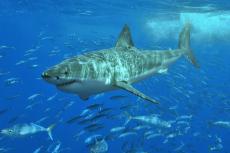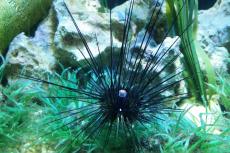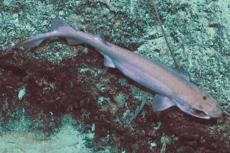Noise pollution also a threat to fish
Increasing noise levels in the sea may severely affect the distribution of fish, and their ability to reproduce, communicate and avoid predators.
Underwater sounds are difficult to hear by people living in air but rather than live in a silent world, most fish hear well and sound plays an active part in their lives.
But in the journal Trends in Ecology and Evolution, Dr Slabbekoorn and colleagues in The Netherlands, Germany and US report how the underwater environment is anything but quiet.
"People always just assumed that the fish world was a silent one," says biologist Dr Hans Slabbekoorn of Leiden University, The Netherlands, on of the scientists who have reviewed the impact on fish species around the world of noises made by oil and gas rigs, ships, boats and sonar.
To date, most research has focused on the impact sound might have on marine mammals, such as whales and dolphins. But noise pollution might severely affect the distribution of fish, and their ability to reproduce, communicate and avoid predators.
For example, some studies have reported that Atlantic herring, cod and blue-fin tuna flee sounds and school less coherently in noisy environments. That could mean that fish distributions are being affected, as fish avoid places polluted by man-made noise.
Different fish vary in the sensitivity of their hearing.
So far, all fish studied to date are able to hear sounds, either by an inner ear or a lateral line that runs along a fish's side. Generally fish hear best within 30-1000Hz, though species with special adaptations can detect sounds up to 3000-5000Hz. For example, Atlantic cod have "average" hearing abilities, say the authors, while freshwater goldfish can hear at higher frequencies.
Some exceptional species are sensitive to ultrasound, while others such as the European eel, a freshwater species that spawns at sea, are sensitive to infrasound.
That means human-generated underwater noise has the potential to affect fish just as traffic noise affects terrestrial animals such as birds, say the researchers.
"The level and distribution of underwater noise is growing at a global scale but receives very little attention," says Dr Slabbekoorn.
- Log in to post comments

























